 |
 |
 |
 |
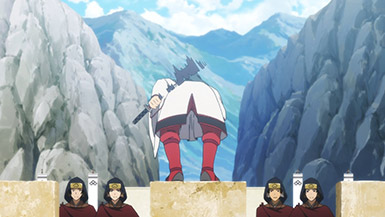 |
 |
 |
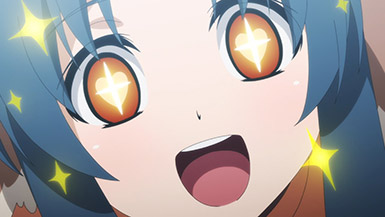 |
 |
 |
 |
 |
 |
 |
 |
 |
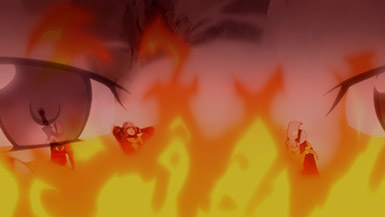 |
 |
 |
 |
 |
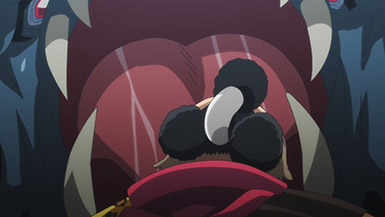 |
 |
 |
 |
 |
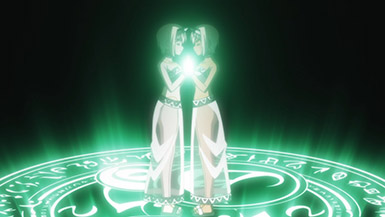 |
 |
 |
 |
 |
 |
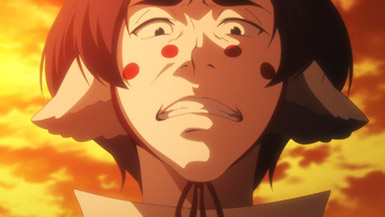 |
 |
 |
 |
「その道を紅く染めて」 (Sonomichi o akaku somete)
“Stain the Road Crimson”
Last week, I went on a great spiel about the development history of Utawarerumono and depth that lies beneath this anime adaptation. It’s important, I feel, for any viewers walking into Utawarerumono: Futari no Hakuoro to fully understand that there are three whole videogames behind this thing, that its developers care a great deal about the title, and that they, evidently, expect their audience to care at a similar level as well. As will become increasingly apparent, there is a lot of exposition and characterisation that has been done and will not be revisted and if you are not already properly invested then Utawarerumono is not going to pay any dividends to you. It’s too late now for any sort of business pitch and this anime knows it so, quite clearly, it’s not even going to bother.
On one level, this is because Utawarerumono is a story that builds on itself. It has a large cast of characters, fighting a geopolitical conflict that has brewed for decades, carrying a will passed down multiple generations, in a continent of multiple cultures that all nonetheless share a single mythology derived from an all-encompasing world mystery. As stories goes, it’s just simply filled with stuff, the kind that is best absorbed over multiple iterations of the IP. And it’s the way of long stories that some concepts become axiomatic – we accept their truth as much out of familarity as anything else and if we didn’t accept them then the story get stuck. It’s like calculus – if we haven’t already taken Algebra 101 it’s going to mean nothing.
On another level, it’s also because Utawarerumono is about war, and it’s hard to discuss war in a critical way without digging into details. Sure, it can portray the mechanics of war or the machinary of war, but Utawarerumono really wants us to feel bad about it. It wants to be more than a glorified news report about war; it wants us to feel for lands razes, the lives upended, the sons killed. Even the fire and death, though objectively horrific and was on some level horrific to watch, has difficulty reaching us on a personal level. I’ll be honest with you, at some point the body count of nameless mooks are . Clone armies clashing just doesn’t really hit home. What Utawarerumono really wants to do is portray grief, and we can’t really feel that grief unless we are in tune with these characters and what they have lost.
This means, though, that everything that doesn’t play into these themes should well be cut, and by that I mean the dinosaur fight. This was, plainly, a legacy of from the videogame. While in the game it served as a worthy gameplay climax, it doesn’t have much purpose as a narrative climax beyond serving as a convenenient karmic end to some third-tier villains. In anime form, it was more or less just a monster-of-the-week on which our cast could take turns unleashing whatever their special attacks are supposed to be (also better in videogame form, by the way). I don’t think we really need an anime in 2022 to be so very 90s.
Instead, we could have spent more time on Maroro, who in this episode serves as the real foil to Oshtor (as I will be calling the character Haku plays). Here is where all that prior characterisation comes into play. Maroro is spoken of as a learned tactician in his own right but we never see him being all that effective at all. The growing implication is that this is because he has neither the appetite nor constitution for war, where his compassion and timidity are at best luxuries and at worst liabilities. By playing Oshtor’s foil, we see that Oshtor is not really wrong; his victory speaks for itself. But Mamoro isn’t really wrong either; Haku doesn’t have the time to mourn his dead friend or hesitate about methods right now, but beneath the mask he actually does very much care. And perhaps more importantly, as an audience, we are supposed to care that he cares, and perhaps mourn for that humanity that is the first casualty of war.

I could definitely feel myself tearing when Maroro accused Oshtor of being cruel. You could feel how deeply he held Oshtor in high esteem and feels a profound sense of grief as well as betrayal when Oshtor essentially resorted to war crimes in order to secure a resounding victory. He is mourning the death of the respected general he once knew, who he believed to be a better person, as well as the death of Haku – who he believes has passed away.
Haku really wants to speak up, and explain the situation. But in order to keep the promise to Oshtor, and protect his one last living relative in Anju, he is bound by his sense of honour and duty to keep the secret.